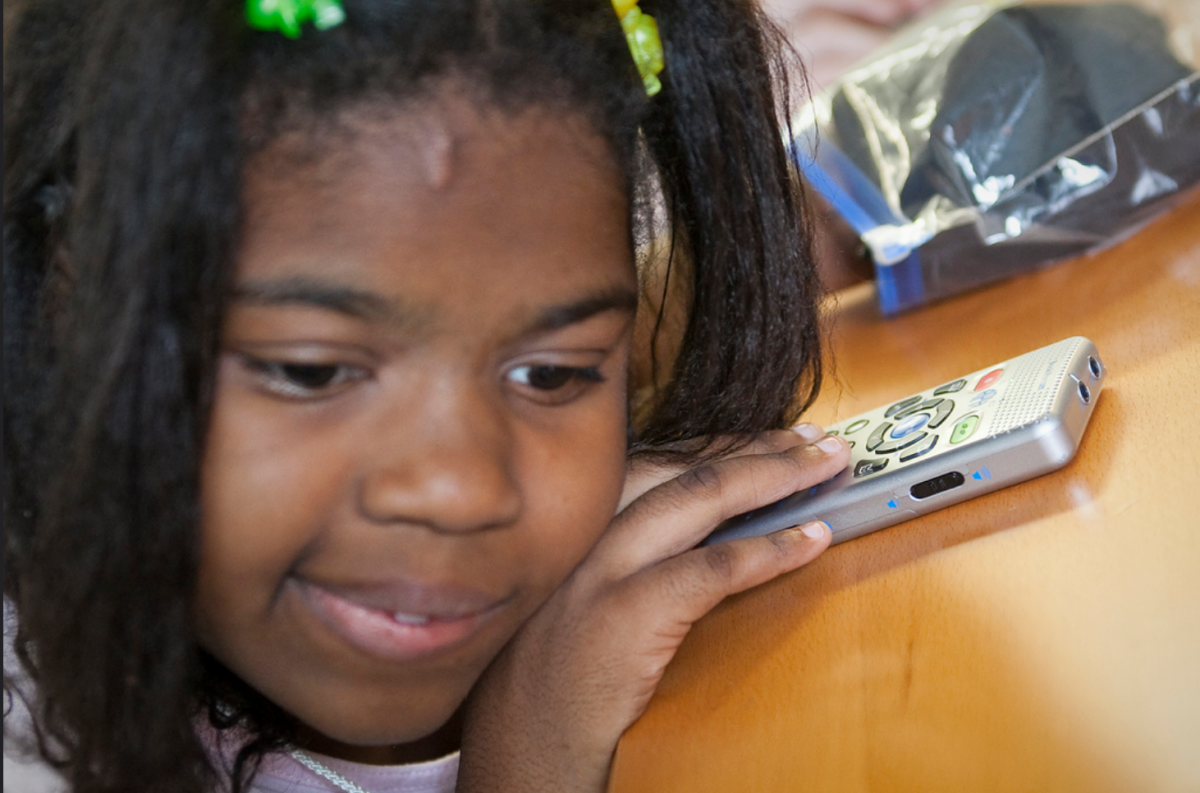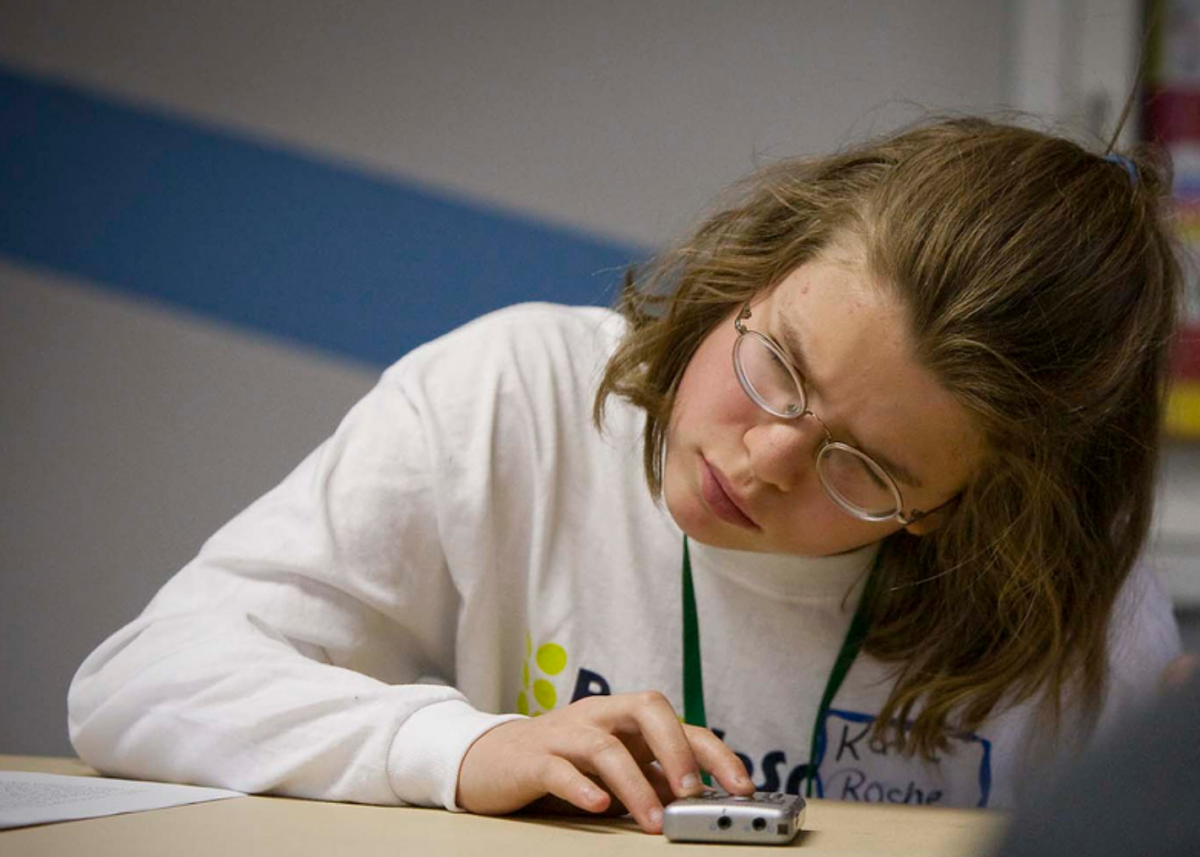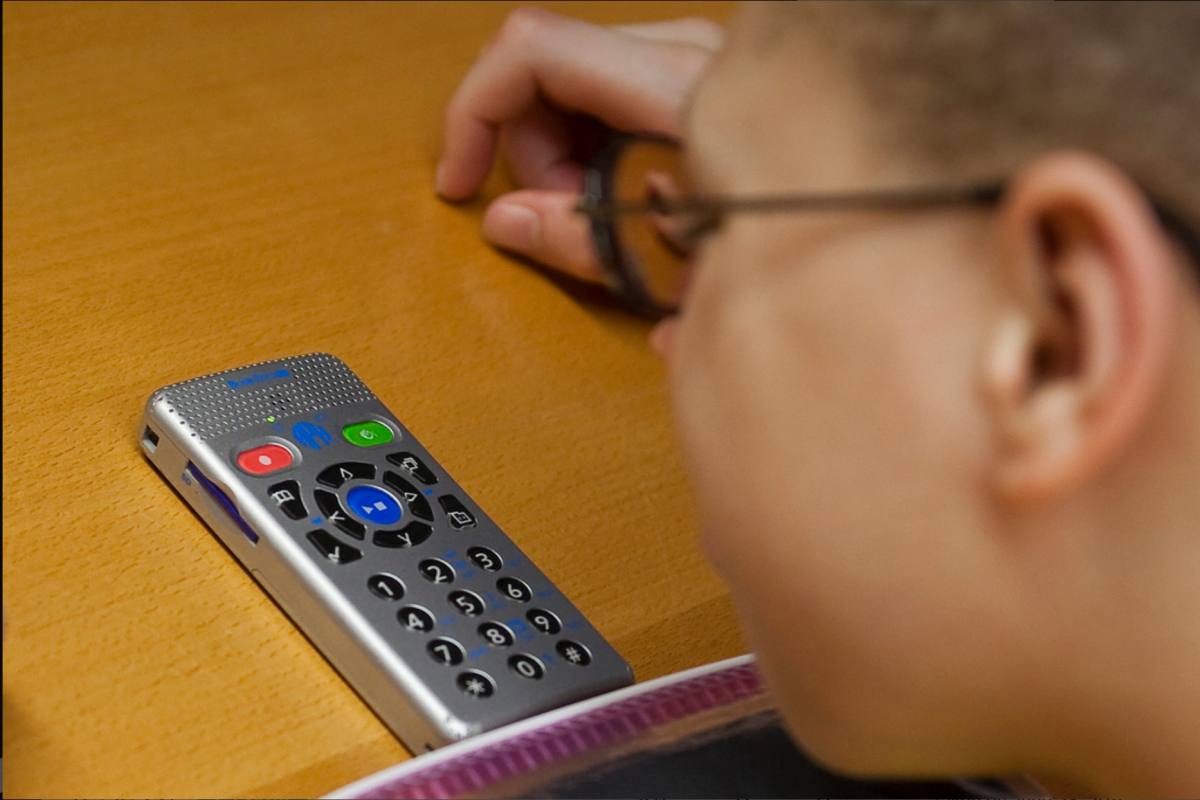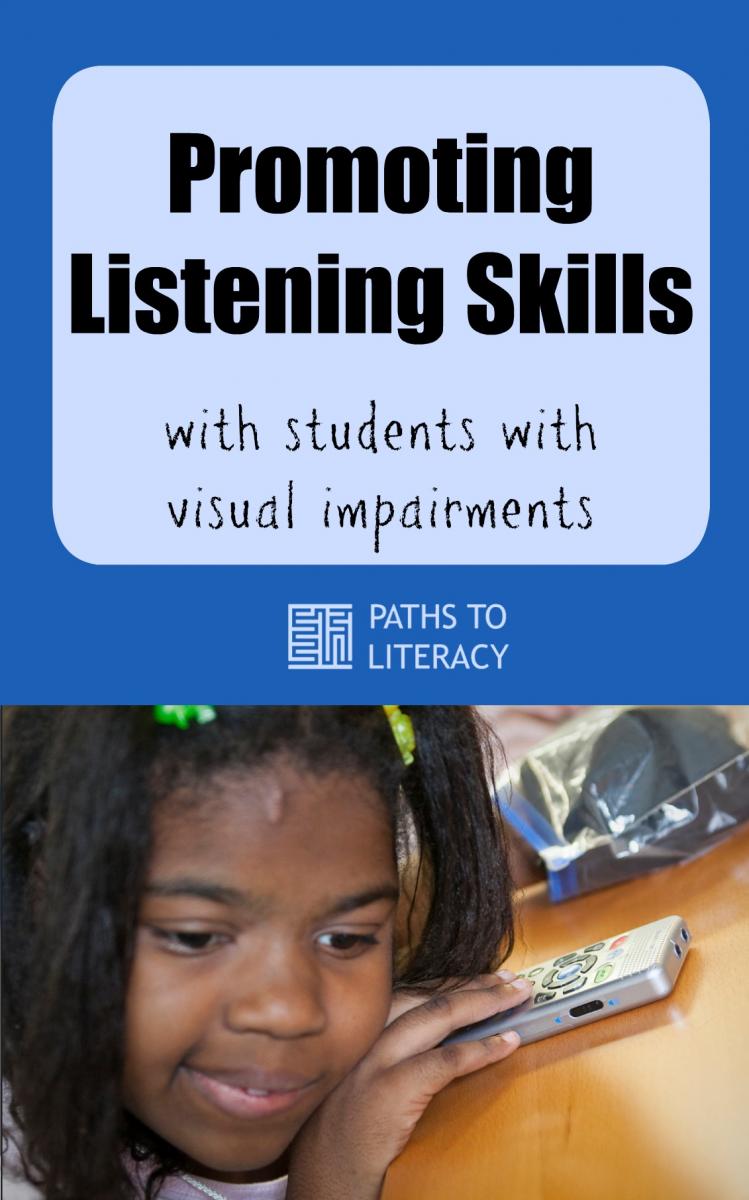Tips to Teach Listening Skills
Submitted by Jodi Floyd on Jul 25, 2017
 "A wise old owl sat in an oak.
"A wise old owl sat in an oak.
The more he [listened], the less he spoke;
The less he spoke, the more he heard.
Why aren't we like that wise old bird."
--Bromley
Although listening skills are not designed to replace braille reading, they are an essential communication skill that all children need to possess. For many individuals who read braille, listening skills will become essential when they enter middle and high school where the academic load and reading quantity grow exponentially.
For Kindergarten and 1st grade:
- Start out with pleasure reading books that are not chapter books. Have the student listen to a page or 2 before stopping the tape and discussing what happened on those pages. After you have finished the book on tape, have the student answer comprehension questions. Use both literal and inference questions.
- Gradually increase the amount of pages the student must listen to before you pause the tape until the student is listening to the entire tape/CD. before the student answers comprehension questions about the book.
- Mix up the types of book you have your student listening to. A non fiction book about an animal or sport the student is interested in is a great way to impart knowledge and get the student interested in listening to something that requires more attention and concentration.
For 2nd thru 5th grade:

Here is a great place to emphasize main idea and important details especially when you and your student listen to a nonfiction book.
- Listen to pleasure reading books that are chapter books written on a level that is even or below the student’s current reading level. (The child’s classroom teacher should have an idea of the student’s reading level. If they do not, there are several reading inventories that are available to help you determine a reading level. Jerry Johns Informal Reading Inventory is one.)
- Listen to a page or 2 before stopping the CD and discussing what happened on those pages.
- Gradually increase the number of pages the student needs to listen to before you stop and discuss what happened on the pages. The child should be listening to a chapter at a time before you stop and have them answer comprehension questions on that chapter. (This maybe a goal that takes the student all year to master).
- After you have done 1 or 2 pleasure reading chapter books, you should pick a book that is from a different genre. Non-fiction books and a book of poems are both necessary for your student to learn to listen to.
For 6th grade thru High School:
- Begin with one of the student’s textbooks. Social Studies or Science are great places to start.
- Listen to a paragraph before stopping and asking questions and discussing what the student read.
- Then move on to listening to a section at a time before answering comprehension questions at the end of each section.
Ideas for Increasing Listening Skills
-
 Scholastic has books with an accompanying CD that come 4 to a pack for $20. These are located on both the website or from the book order forms that the general education classroom teacher passes out. Take those books and make a comprehension questionnaire with 5 to 10 questions that go along with the book.
Scholastic has books with an accompanying CD that come 4 to a pack for $20. These are located on both the website or from the book order forms that the general education classroom teacher passes out. Take those books and make a comprehension questionnaire with 5 to 10 questions that go along with the book. - Gradually increase speed of listening devices such as JAWS, Victor Stream, or Daisy player so that the student is beginning to learn to listen at a faster rate.
- When a student asks how to spell a word, spell it and have them spell the whole word back. If they get stuck on a word, spell the whole word again so that they have to listen and keep up.
- Play a game where the student has to follow a single step direction then gradually increase where the student is following complex 4 and 5 step directions.
- Dictate a small portion of a sentence and gradually increase the amount of information you give the student until they are writing the whole sentence from you saying it only 1 time.
- To assess listening skills, you can use the AR and STAR reading tests in the school system after the child has listened to the book to get a comprehension score.
- Have the student listen to a book on tape and then write up a short book report about the book.
- Read short poems and talk about what words rhyme or what the poem is talking about.
- Recalling events in proper sequence is important skill. Use any story and have the students retell the story using the events in the order that they happened. For example, first, the bears went for a walk. Next, Goldilocks went into the house.

This article was originally posted on the BrailleSC website, which was funded by a grant from the US Department of Education with support from the University of South Carolina Upstate and The Maryland Institute for Technology in the Humanities.

Comments
Listening skills
Liz Barclay and Listening Skills
Great strategies for much needed skill
A Framework for Planning a Listening Skills Lesson